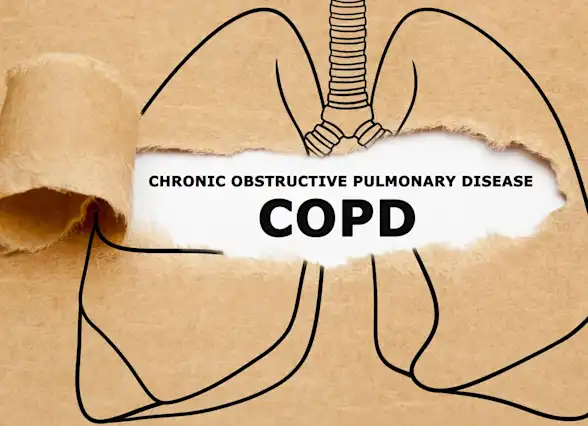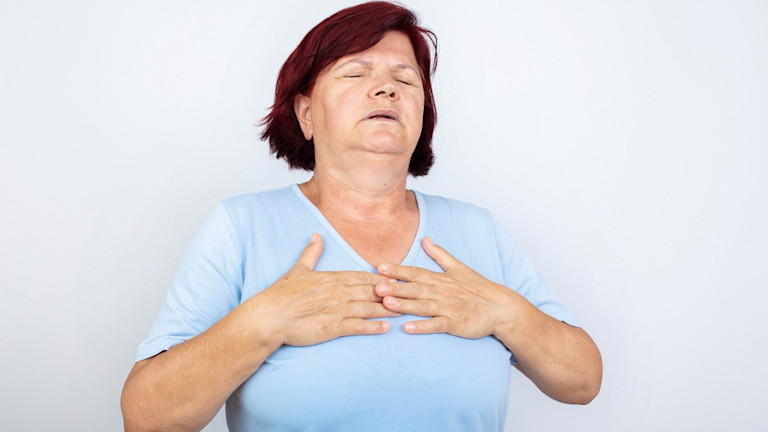Is it COPD?
Are you concerned about a loved one because they don’t have the energy they used to have or seem short of breath?
Get insurance benefits, legal documents, and medical records in one place

Helpful Highlights
Many people, especially current and former smokers, may assume that they have COPD.
Some illnesses that persist for weeks or even months, like an untreated upper respiratory infection or pneumonia, may look like COPD.
It's important, especially if your loved one has risk factors, to see their primary care provider because early detection is key to good COPD symptom management.
Simple physical changes that increase or do not resolve could mean a change in your loved one's medical condition. During their next primary care provider visit, share subtle, ongoing changes. Most of the time, a person will tell their healthcare provider “I’m fine.” The changes occurring slowly over time are now normal for them and not apparent that those changes indicate a potential problem.

What is COPD?
COPD, or Chronic Obstructive Pulmonary Disease, is a common chronic inflammatory lung disease and refers to a group of diseases that cause airflow blockage and breathing difficulty. Emphysema and chronic bronchitis are the most common conditions within COPD.
Although COPD is not curable, it is treatable. Early detection and treatment of COPD can change the course and progression of the disease.
Early detection
Common symptoms at the onset of COPD may include:
Increasing breathlessness – first appearing during exercise or prolonged activity
Waking up feeling breathless (including during the night)
A persistent cough with or without phlegm that does not go away
Frequent respiratory infections
Sleeping on more than 1 pillow
Difficulty taking a deep breath
Lack of energy
Wheezing
Chest tightness
How to reduce COPD onset risk (or worsening)
STOP SMOKING. Quitting smoking is the single most important action to take.
If not a smoker, don’t start.
Avoid exposure to secondhand smoke.
Be aware of other dangers to the lungs - chemicals, dust, and fumes at home and in the workplace. Wear a face mask when there is a potential for exposure.
What can you do for your loved one?
Accompany them to visits with their primary care provider to encourage them to talk about changes.
Observe for subtle changes in demeanor or physical well-being and report the changes, such as:
My mother used to walk around the block, but now she is short of breath getting her mail.
My father no longer has the appetite he used to have and says he’s too tired to eat.

Ask questions, such as:
If COPD is a new diagnosis, what should I look for that warrants a visit to the MD before the next scheduled appointment?
When should I be worried and call 911?
How can I keep my loved one out of the hospital?
RESOURCES
American College of Chest Physicians (ACCP) – COPD
American Lung Association (ALA) – COPD
American Thoracic Society (ATS) – COPD
COPD.com – Understanding COPD Stages & Progression
Global Allergy & Airways Patient Platform (GAAPP) – Four Stages of COPD
National Institutes of Health (NIH) Heart, Lung & Blood Institute – Lung Health Resources
No content in this app, regardless of date, should ever be used as a substitute for direct medical advice from your doctor or other qualified clinician.
Get more support and guidance on insurance benefits, medical records and legal forms.
Helpful brings together your insurance benefits, legal documents, and medical records in one personalized place — so you always know what you have, and never have to search again.

Technology for Health Tasks. Mental Health for the Tough Stuff.
Helpful connects your medical records, insurance, and caregiving tasks automatically. And when you need more than logistics, a therapist is here to guide you.
In-Network and Covered
For Individuals, Couples and Families
HIPAA Compliant, Data Stays Private


Healthcare Tasks Simplified

From syncing records to spotting drug interactions, Helpful does the heavy lifting, turning complex health info into clear tasks and showing you benefits you can actually use, giving you clarity and control over your care.

In-Network Mental Health

Our licensed therapists are here to support you and your loved ones through stress, burnout, and life’s hardest moments, with an inclusive, compassionate approach that works with most insurance plans.

Create Legal Documents

Plan ahead by creating will, trusts, advance directives and more, that ensure your wishes are honored in the event you can’t speak for yourself -with Helpful guiding you every step of the way.